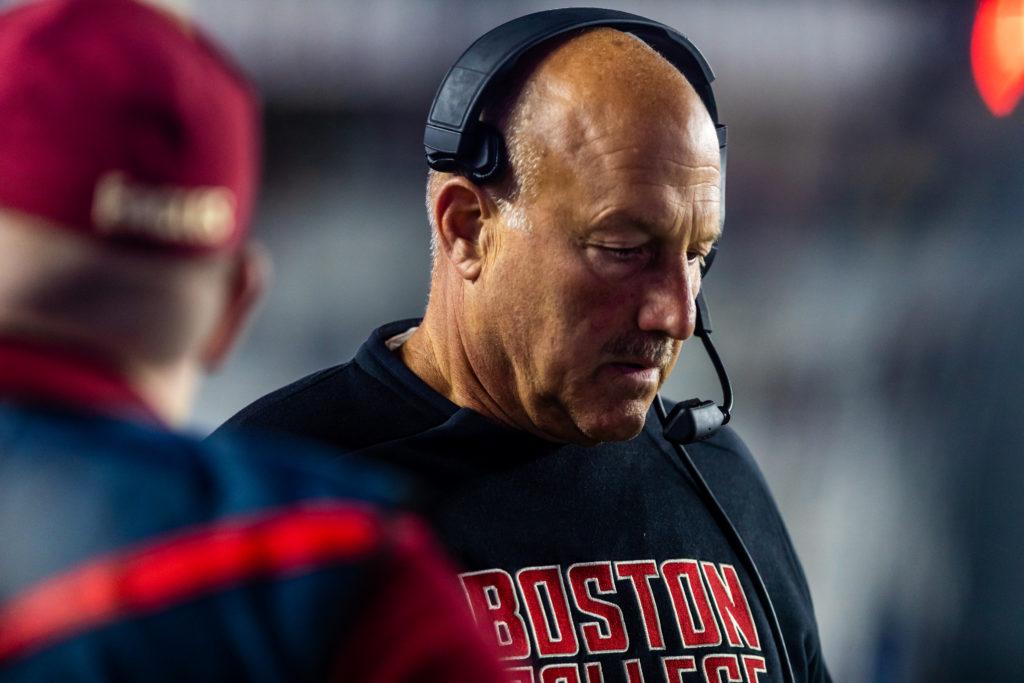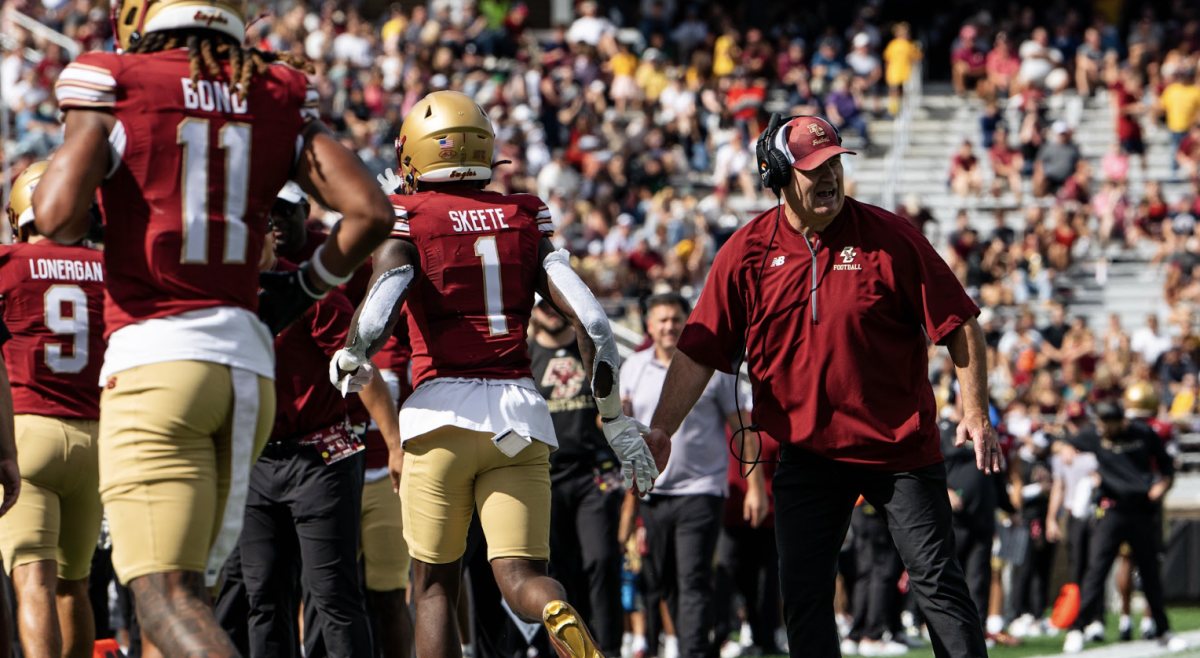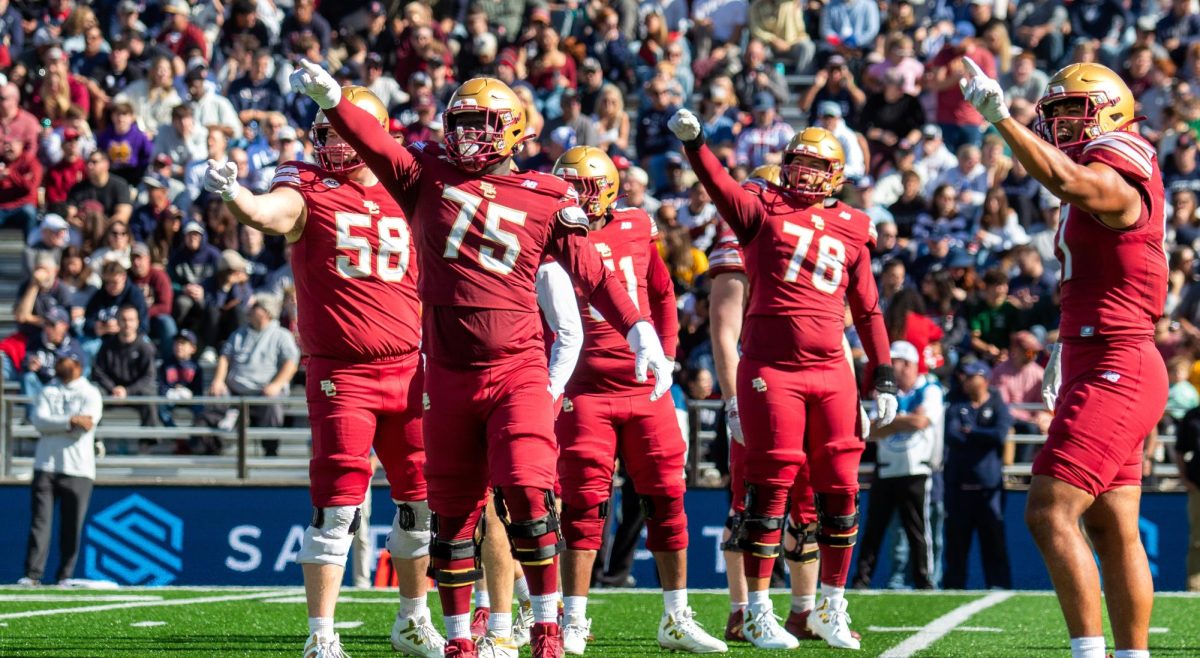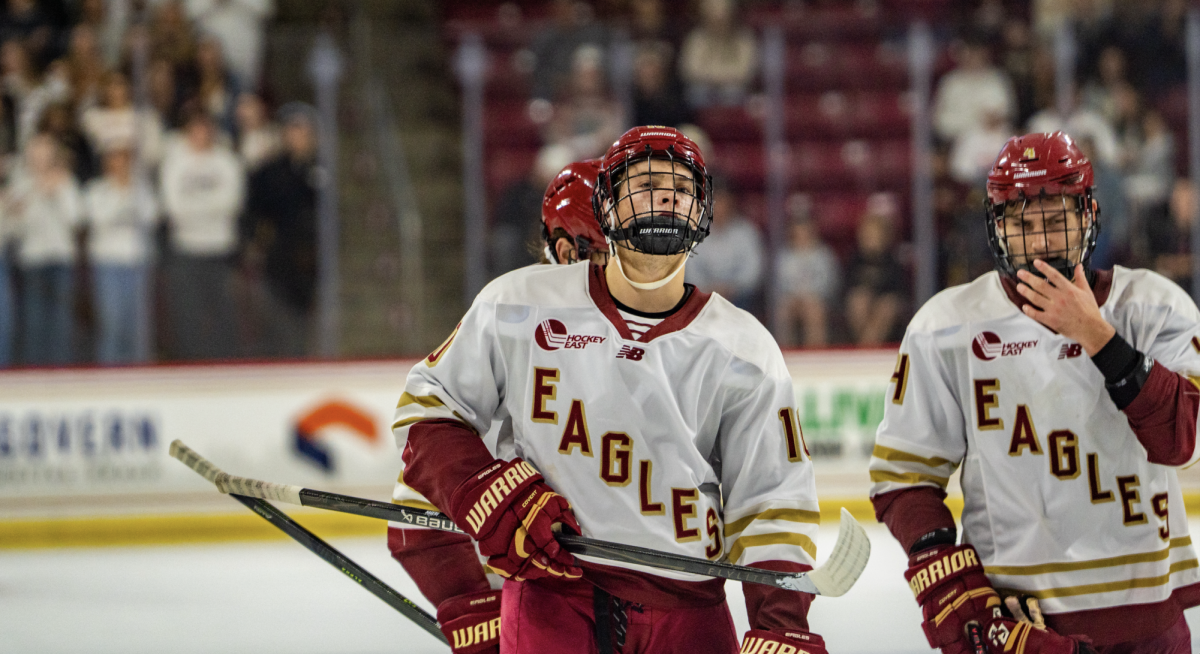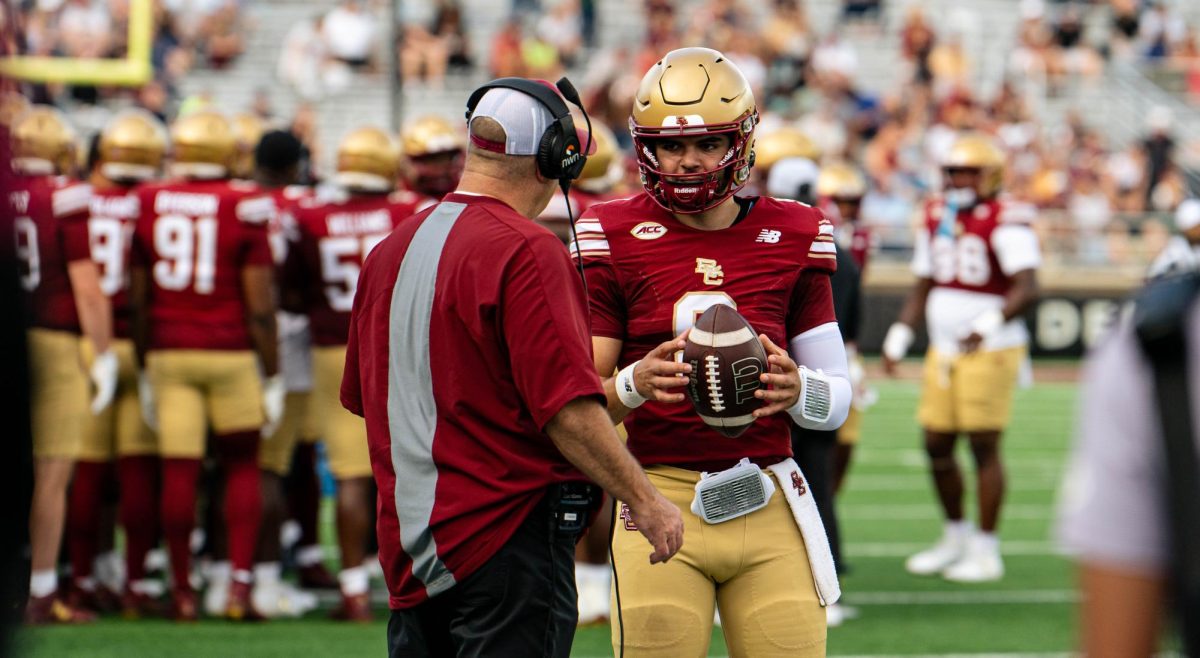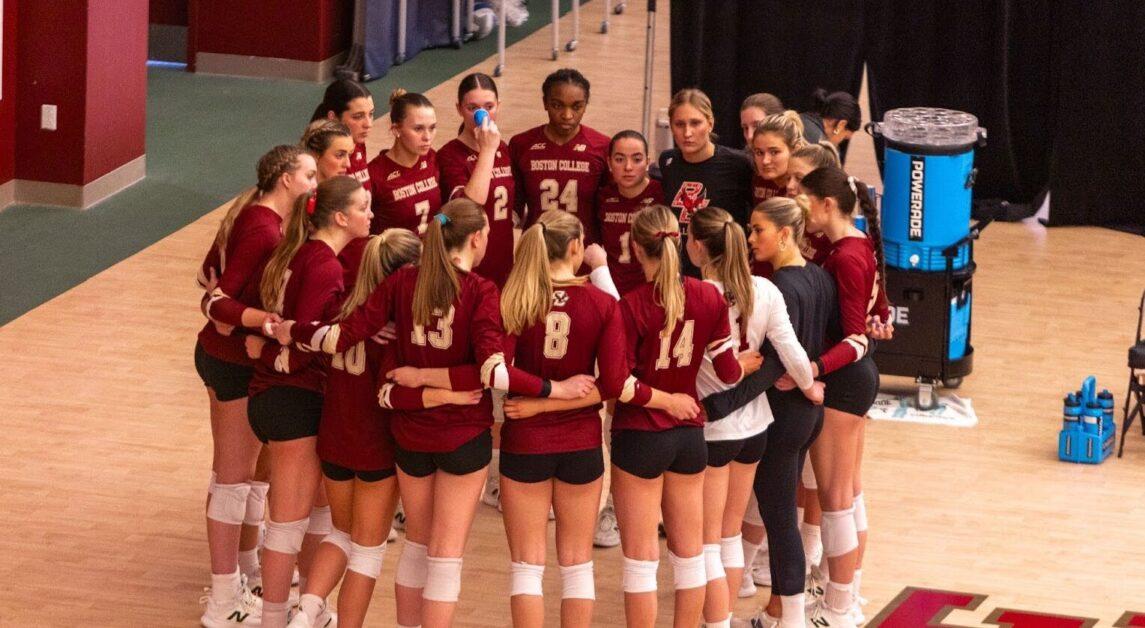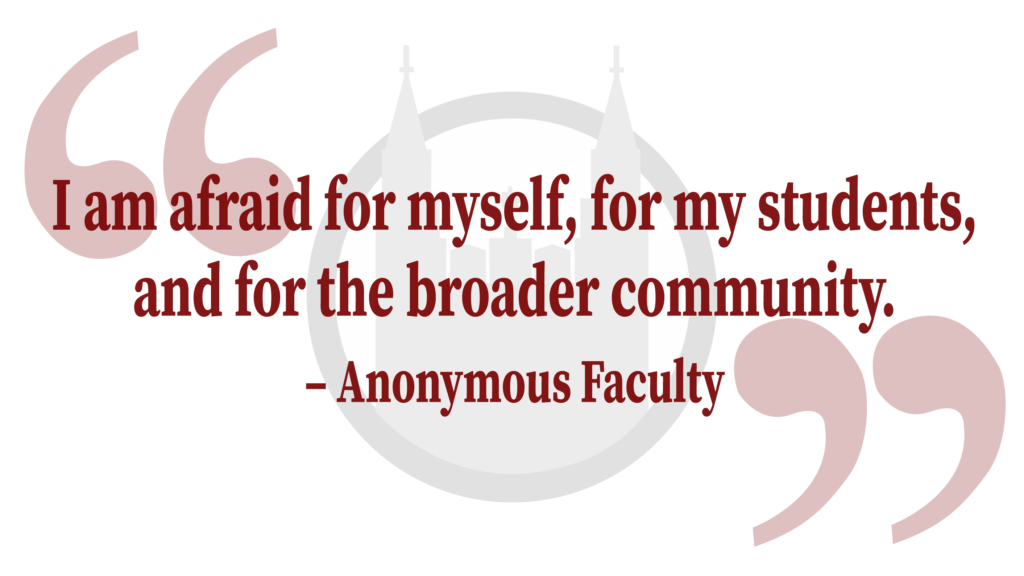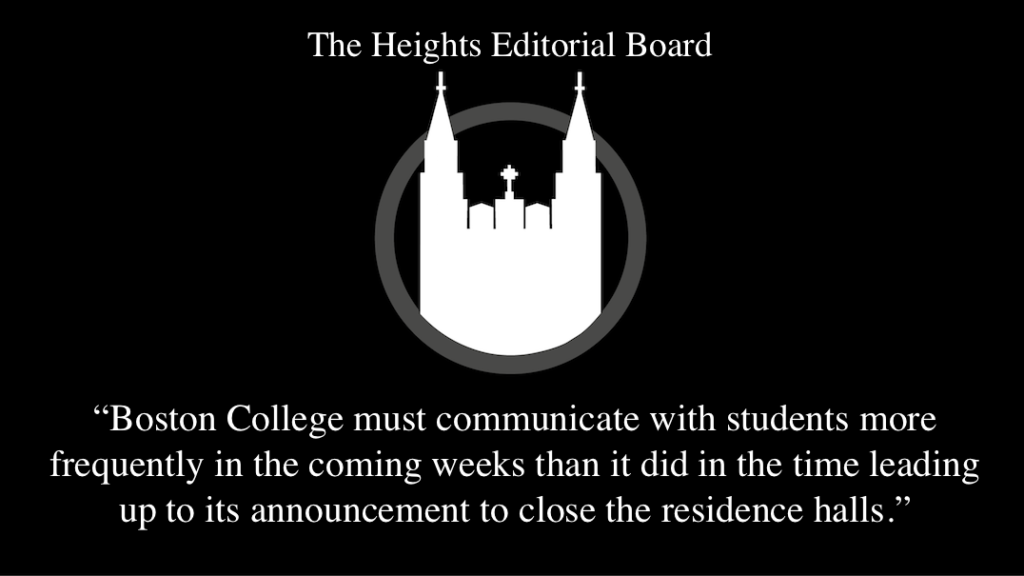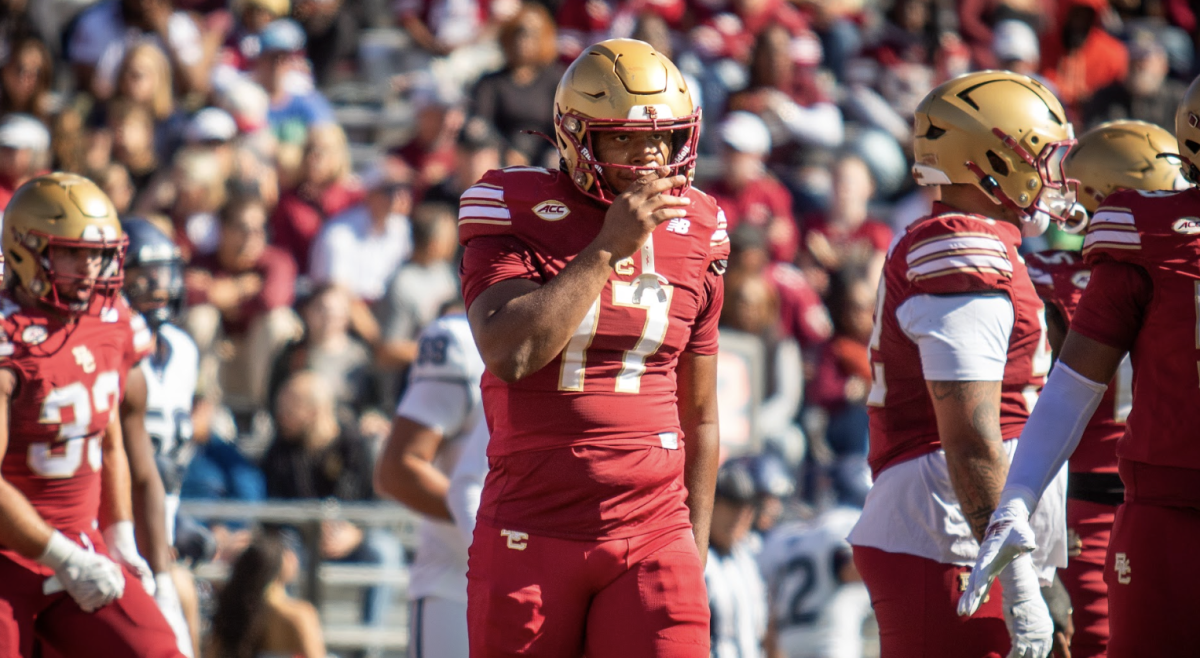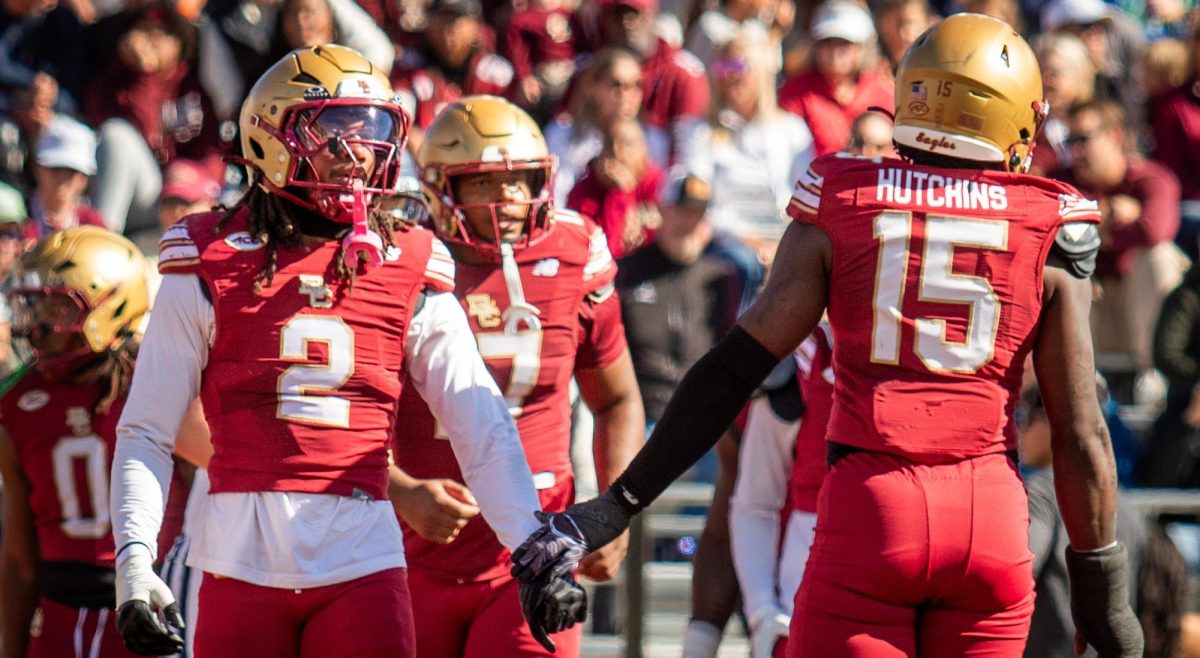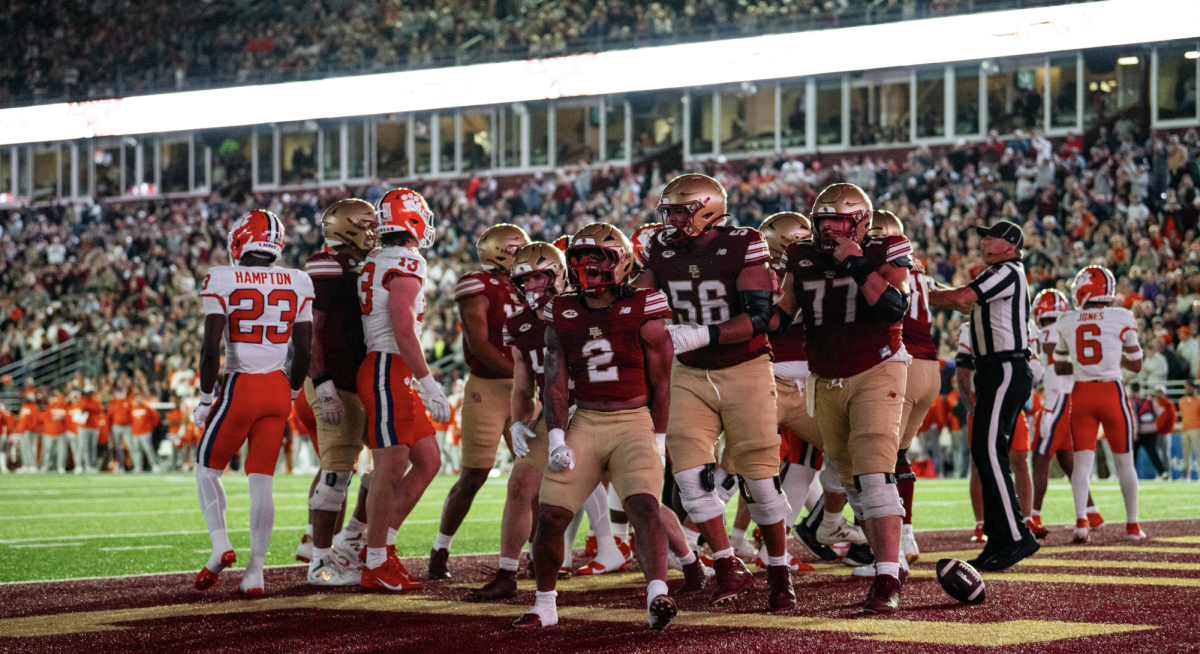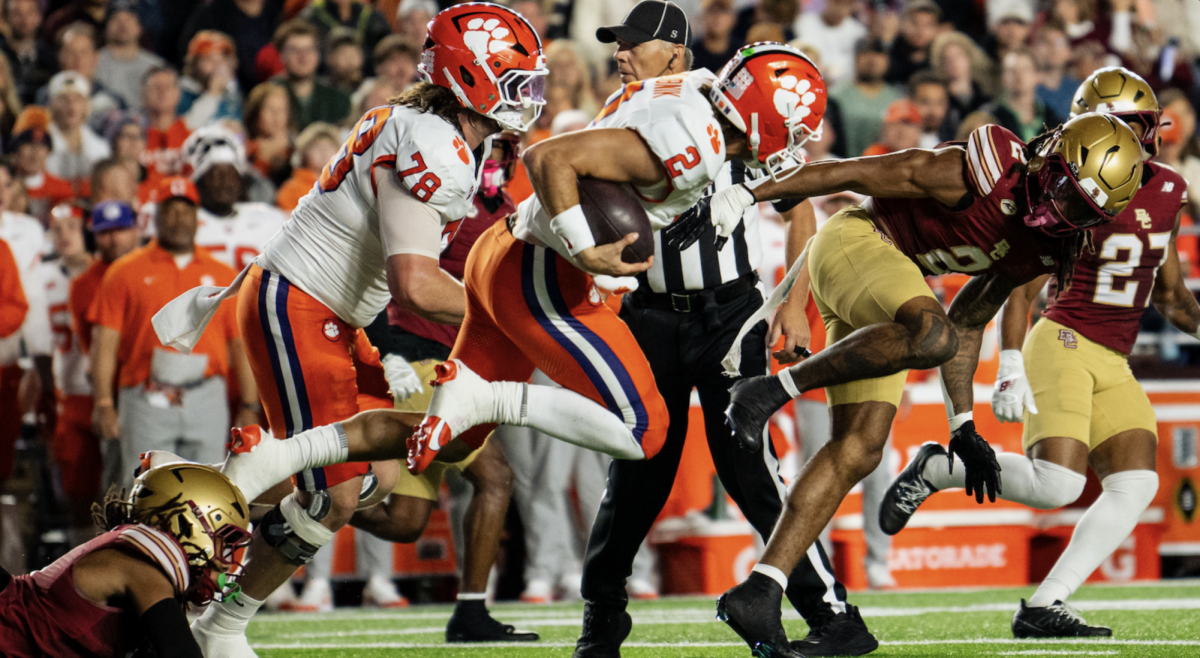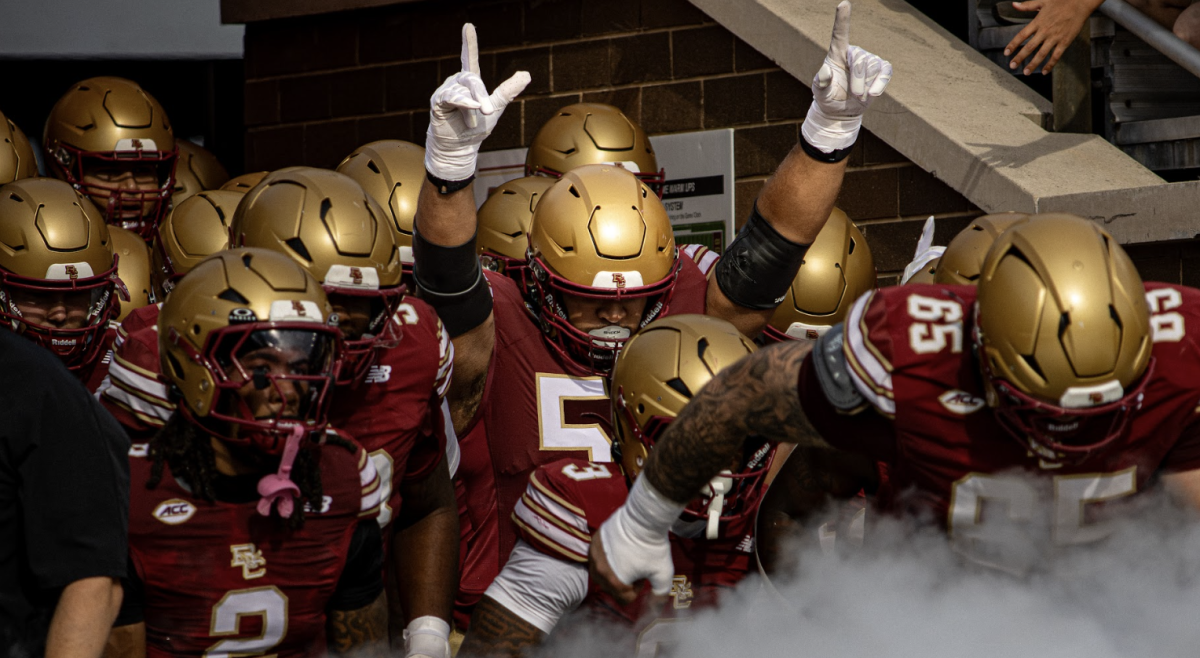“Obviously, I did not do a good enough job getting our team ready to play tonight,” Boston College head football coach Steve Addazio said Friday after a 24-point setback to Kansas, which entered as 21-point underdogs. “I’m responsible for that and it’s my job to make sure we get that fixed.”
Addazio is right, it is his job. But if he continues to do it improperly, like he did Friday night against Kansas and has done on several other occasions, it shouldn’t be his job anymore.
In 2015, Boston College football lost, 3-0, to Wake Forest. As you might expect, given the scoreline, it was a game rife with Eagles miscues. BC missed two field goals, from 31 and 26 (yes, 26) yards. The only points of the game came after Eagles running back Jordan Gowins fumbled at his own five-yard line. Throughout the game, Addazio alternated between quarterbacks Troy Flutie and Jeff Smith with seemingly no rhyme or reason.
But of course, nothing was as bad as the clock management at the end of the game. After BC’s defense miraculously forced a fumble at the Demon Deacons’ 11-yard line with just over a minute remaining, giving the Eagles’ offense one final chance to put points on the board, BC and Addazio put on a breathtakingly inept display of clock management.
With 19 seconds to play, and the Eagles on the one-yard line, BC inexplicably chose to run the ball up the middle with zero timeouts. When Tyler Rouse was stopped short of the goal line, the Eagles were unable to reset and get the ball snapped in time, and the clock expired. It was the cherry on top of a horribly-coached game and undoubtedly was the worst loss of Addazio’s tenure at the helm.
Until Friday.
That was when BC lost, 48-24, to Kansas. Despite jumping out to an early 17-7 lead, the Eagles were doubled up by the Jayhawks, a team that lost, 12-7, the week prior to Coastal Carolina, a team in just its second season as a full-time FBS program. Even though BC was favored by 21 points, and was playing at home, Addazio’s team was totally outclassed by a program that, coming into Friday, held a 19-91 record this decade. Yeah, you read that right. 19-91. Before beating BC, Kansas had lost 48 straight road games against Power Five teams. The last time the Jayhawks won one of those games? Oct. 4, 2008 against Iowa State.
After its first two drives ended with an interception and a punt, Kansas scored on seven straight possessions, turning a 10-0 deficit into a 41-24 lead. Pooka Williams Jr. and Khalil Herbert, the Jayhawks’ running back duo, combined for 308 yards rushing, while Carter Stanley, the same quarterback that completed 13-of-19 passes for just 107 yards and two interceptions in the loss to the Chanticleers, picked apart the Eagles secondary, completing 20-of-27 throws for 238 yards and three touchdowns. To make matters worse, many of the receivers that Stanley found were wide open, without a BC defender in sight.
The Eagles were simply chasing shadows, unable to manufacture any sort of big defensive play, even if their lives depended on it. Defensive linemen were unable to hold their gaps in run defense, and Kansas repeatedly found big gains off the same types of pitch plays and off-tackle runs. In pass defense, BC was no better, choosing to stay in its base personnel even when the Jayhawks put four wide receivers on the field, forcing linebackers to match up with wide receivers. Even worse, the Eagles stuck with a soft zone coverage for most of the night, leaving Stanley free to have his pick of easy short throws.
Now to be sure, there were missed assignments aplenty, and poor tackling, and some of that has to fall on the players on the field. However, a stubborn inability to adjust to a dominant Kansas offense and find an answer for Williams Jr. and Herbert, or play closer to receivers in order to make life at least slightly harder for Stanley, certainly didn’t help, and should fall on Addazio, Bill Sheridan, and the entire defensive coaching staff. Sheridan and his predecessor, Jim Reid—who was demoted after the 2018 campaign—have both overseen a defense that has steadily regressed since the 2015 unit that Don Brown so masterfully oversaw.
And that’s just on defense. On the offensive end, BC abandoned the AJ Dillon-David Bailey rotation that had been so effective in the first two games of the season, and drastically underutilized Zay Flowers, who touched the ball just three times the whole game. Perhaps most criminally, after Dillon rumbled for 128 yards on 22 carries in the first half, the Eagles offensive coaching staff gave him just five carries total in the second. To be fair, BC trailed by multiple scores for a large portion of the latter half and it’s understandable that Addazio doesn’t want to run Dillon into the ground given the junior’s injury history, but five touches in a half for one of the team’s most dynamic players—one has also displayed a newfound ability to catch the ball out of the backfield—is poor play-calling at best.
Now, every coach certainly has bad games, or days when the game plan just isn’t working, and the guy coaching opposite Addazio, Les Miles, is a former national championship winner. But any person that’s going to call themselves a head coach at a Division I NCAA football program has to be able to react to their opposition and adjust. That’s part of being a prepared head coach, and something that Addazio and his whole staff failed miserably at Friday night against the Jayhawks.
Of course, one bad game wouldn’t be the end of the world. The truly concerning thing, however, is that this has become a trend the past seven years.
It started in 2014, when the Eagles lost to Colorado State, 24-21, at home. Granted, that Rams team finished the year 10-3, but won just one other game against a Power Five opponent, and BC came into the game as six-point favorites. Throughout the game, the Eagles were unable to get pressure on Garrett Grayson (something that also happened in abundance against the Jayhawks) and allowed him easy completions underneath. Not surprisingly, Grayson led Colorado State down the field before throwing a game-winning 12-yard touchdown pass on a coverage breakdown with just over a minute left.
Then, of course, there was the Wake Forest debacle in 2015, and a 49-0 undressing at the hands of the Hokies in 2016 in which BC went three-and-out 10 times and managed just 124 total yards of offense. Addazio and Co. stubbornly insisted on establishing the run and simply weren’t able to slow down Jerod Evans, who threw five touchdowns.
In 2017, there was another embarrassing loss to the Hokies, a 23-10 defeat that was nationally televised and a whole lot more lopsided than the scoreline indicated. BC gave Dillon and Jon Hilliman a combined 23 carries for 57 yards, once again displaying a total lack of offensive innovation. On defense, VTech and quarterback Josh Jackson kept attacking the middle of the field with short throws, repeatedly victimizing an Eagles defense that seemed to have no adjustments. It was the game that sparked the famous “It’ll come together and it’ll be beautiful” rant from Addazio, and for a while it looked like, indeed, that he had put his issues behind him.
The Eagles rattled off five wins in their last six regular-season games before dropping a frigid Pinstripe Bowl game, and started 2018 off well, winning their first three games and jumping into the No. 23 spot in the AP Poll. But just when BC was riding high, the Eagles’ old problems reared themselves at exactly the wrong time.
In Week 4, BC went on the road and lost, 30-13, to a Purdue team that finished the season 6-7 and started the season 0-3. Once again, the scoreline was much closer than the game itself was. Addazio and Co. stubbornly ran Dillon into crowded boxes all game long—the then-sophomore finished with just 64 yards on 19 carries—and didn’t come up with any answers in the passing game. Anthony Brown finished with just 96 yards and four interceptions. On defense, the Eagles struggled with tackling all game long, notably failing to wrap up Rondale Moore on a 70-yard touchdown that completely changed the game’s momentum.

Later in the year, there was the now-infamous loss at Florida State. With 2:52 left in the fourth quarter, and BC up, 21-16, Addazio chose to punt the ball with the Eagles facing 4th-and-1 from the Seminoles 40-yard line. BC had already converted in three 4th-and-short situations that day, but with the opportunity to close the game out, chose unforgivably to be too conservative. Three plays later, Tamorion Terry broke free for a 74-yard touchdown reception that won the game for FSU. On that play too, the Eagles looked unprepared. Despite BC being ahead, Sebastian was put in one-on-one coverage against Terry with no safety help, leaving the then-redshirt freshman susceptible to being beat over the top.
Then of course, to top it all off, there was Friday. Put it all together, and you have a pattern of BC being totally unprepared to compete in at least one game a season. For a Power Five team that’s been trying desperately to break the seven-win plateau all decade long, that’s simply unacceptable. In fact, for any football team at any level, that’s simply unacceptable.
And that’s just in-game preparation. Throughout Addazio’s time at the helm, the Eagles also have lacked year-to-year preparation. Granted, one of his strengths is player development, and his work in churning out gems like Justin Simmons, Zach Allen, John Johnson III, Chris Lindstrom, and Harold Landry must be commended. But if Addazio and his staff are so good at player evaluation and development, then why can’t they find a competent kicker?
The position has been an issue since 2014, when a missed extra point cost BC a potential bowl win. Over the past five seasons, the Eagles have made just 67.2 percent of their field goals—an abysmal rate—and, in 2018 alone, missed four extra points. It’s unforgivable that BC has neglected the kicking game since Nate Freese left campus, and hints at a coach who is either unwilling to take a hard look at his problems and fix them, or a coach who simply doesn’t consider the kicking game that important. Either way, Addazio and his staff come off as unprepared and neglectful.
The most frightening part of this is that—as a seven-year pattern would suggest—Addazio simply can’t (or won’t) change. His in-game decision making has stayed the same for seven years, his offensive philosophy has stayed the same for seven years, he’s been unable to develop a consistent quarterback for seven years, and, most importantly of all, BC’s record has stayed mostly the same for seven years. It’s clear at this point that it’s unrealistic to expect any form of meaningful improvement for the Eagles under Addazio, and if BC has indeed peaked under his watch, then it’s time to make a change that can lead in a meaningfully positive direction.
One could make the argument that consistency is important for the Eagles, but is a record of 21-38 against Power Five opponents the kind of consistency any ACC team, even BC, seek out? The answer, undoubtedly, should be no. And in that case, Addazio should go.
When asked Friday about all the big plays that the Jayhawks were able to manufacture against his defense, Addazio responded with the following:
“It’s my job to get that fixed. My job to make sure that that doesn’t happen, so it’s my responsibility, and so going to get back to the drawing board here first thing in the morning and put the film on and we’re going to get better and take that down next week and play a much better football game.”
That’s just the problem, though. Under Addazio, there’s no reassurance that the Eagles will fix those issues, or play a much better football game next week. And that’s simply unacceptable.
Featured Image by Jess Rivilis / Heights Staff

